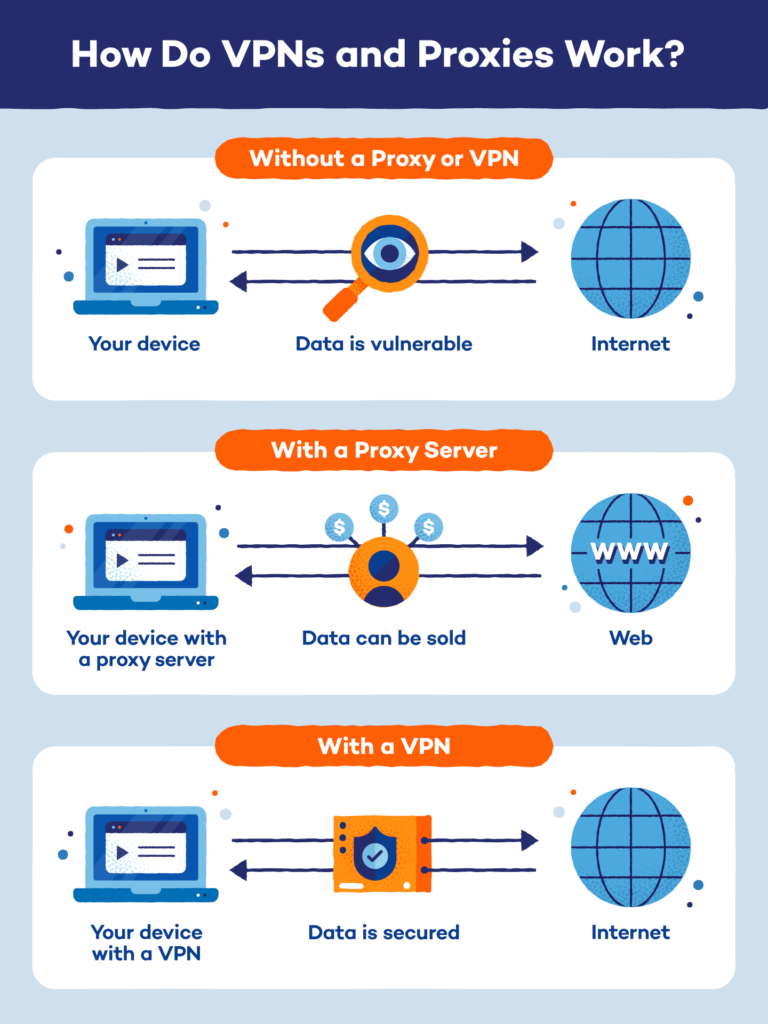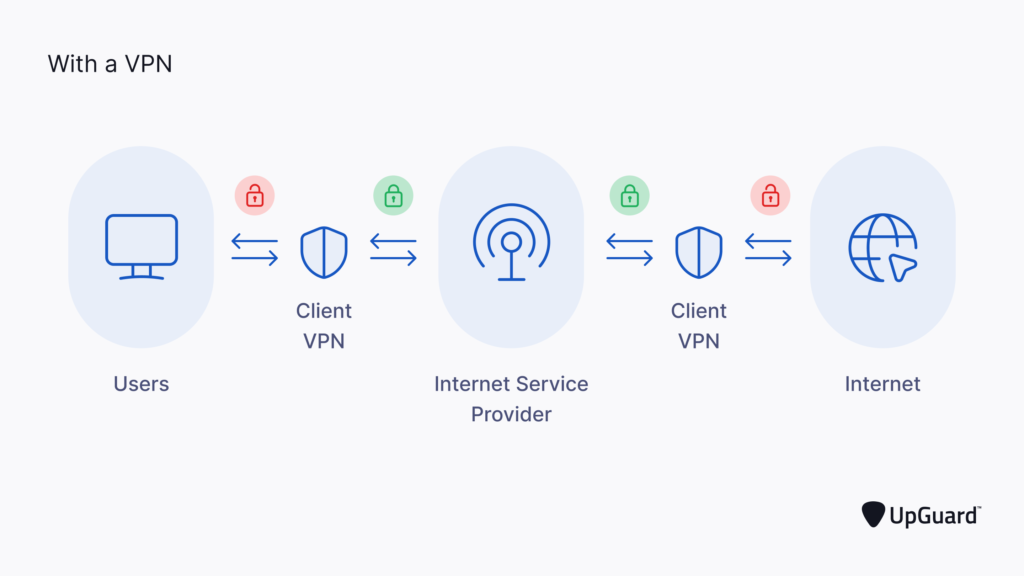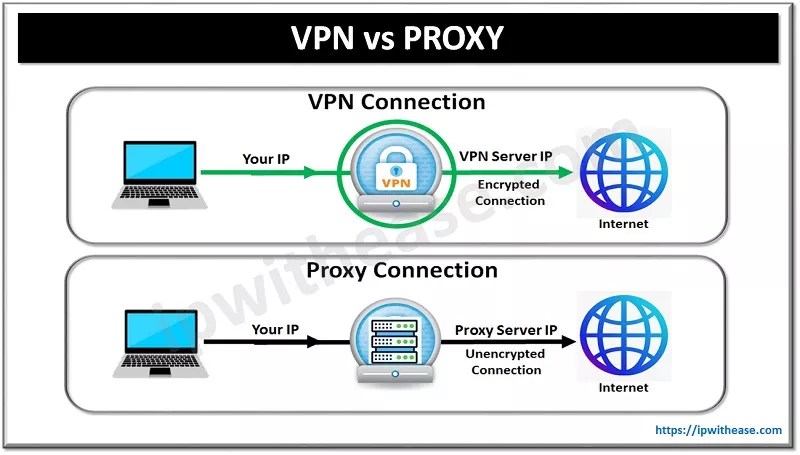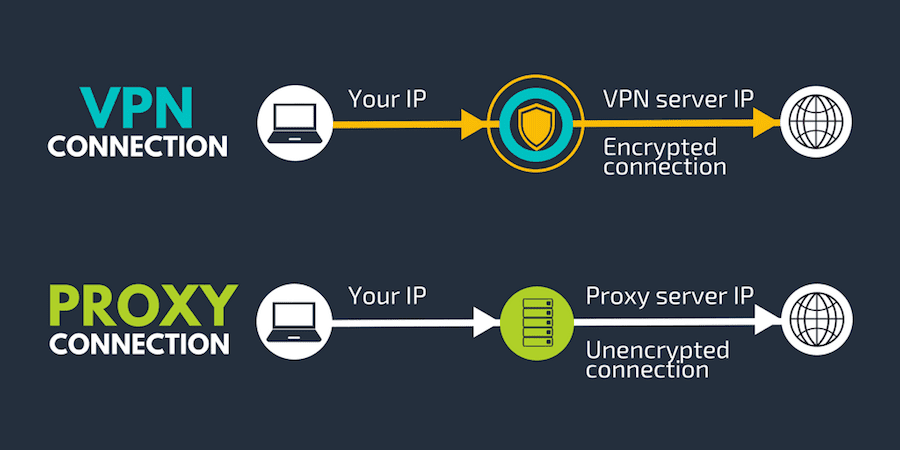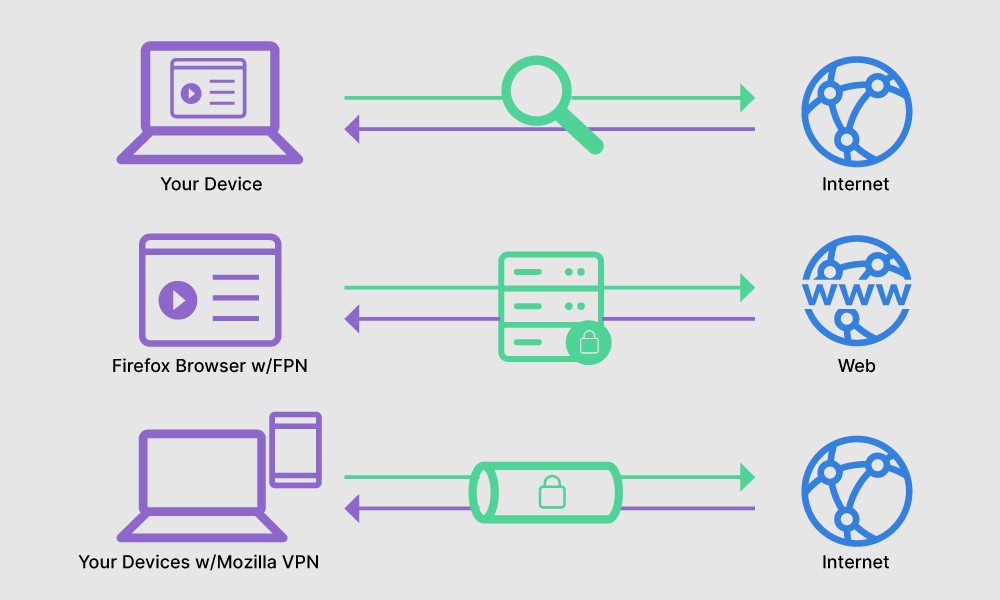VPNs Vs Proxy Servers
In the tech-savvy world we live in today, online security and privacy are of utmost importance. That’s where VPNs and proxy servers come into play. Whether you’re navigating the web for leisure or logging into your work accounts, you want to ensure that your data remains secure and anonymous. This article delves into the key differences between VPNs and proxy servers, providing valuable insights for both beginners and advanced users. So, let’s take a closer look at these two powerful tools and discover which one is better suited to meet your specific needs.
What is a VPN?
A Virtual Private Network (VPN) is a technology that allows you to create a secure and encrypted connection between your device and the internet. By using a VPN, you can protect your online privacy and anonymity, access blocked content, and enhance your online security.
Definition
A VPN is a service that creates a private network connection over a public network, such as the internet. It establishes a secure tunnel between your device and the VPN server, encrypting all the data that passes through it. This ensures that your online activities are private and cannot be monitored or intercepted by anyone.
How it works
When you connect to a VPN, the VPN client on your device encrypts your internet traffic and sends it to the VPN server. The VPN server then decrypts the data and forwards it to its destination on the internet. This process also works in reverse, ensuring that the data you receive is encrypted and secure.
Benefits
Using a VPN comes with several benefits. Firstly, it provides enhanced online privacy and anonymity by hiding your IP address and encrypting your internet traffic. This means that your online activities and personal information are protected from prying eyes. Additionally, a VPN allows you to bypass geographic restrictions and access blocked content, such as streaming services or websites that are not available in your region. Finally, a VPN improves your online security by providing an extra layer of encryption and preventing unauthorized access to your data.
What is a Proxy Server?
A proxy server acts as an intermediary between your device and the internet. It allows you to access websites and services indirectly through its own IP address, rather than your own. Proxy servers can be useful for various purposes, including bypassing restrictions, improving speed, and protecting your identity.
Definition
A proxy server is a server that acts as a gateway between your device and the internet. When you make a request to access a website or service, the request is first sent to the proxy server. The proxy server then forwards the request to the destination and retrieves the response, which is then sent back to your device.
How it works
When you connect to a proxy server, your internet traffic is routed through the server. This means that the website or service you are accessing sees the IP address of the proxy server instead of your own. This can be useful for various purposes, such as bypassing censorship, accessing blocked content, or improving speed by caching data.
Benefits
Using a proxy server offers several benefits. Firstly, it allows you to access websites and services that may be restricted or blocked in your location. By routing your traffic through a proxy server located in a different country, you can bypass geo-restrictions and access content that would otherwise be unavailable to you. Additionally, proxy servers can improve speed and performance by caching data and reducing the load on the network. Finally, using a proxy server can provide a layer of anonymity by masking your IP address and protecting your identity.
Comparison of VPNs and Proxy Servers
When it comes to choosing between a VPN and a proxy server, it’s important to consider their differences in terms of anonymity and privacy, security, access to blocked content, speed and performance, and user-friendliness.
Anonymity and Privacy
Both VPNs and proxy servers offer anonymity and privacy features, but there are some key differences.
Encryption
VPNs use strong encryption protocols to secure your internet traffic, ensuring that it cannot be deciphered by anyone trying to intercept it. Proxy servers, on the other hand, do not provide encryption by default. While some proxy servers may offer encryption as an additional feature, it is not as robust as what a VPN offers.
IP Address
VPNs hide your IP address by replacing it with the IP address of the VPN server. This makes it difficult for websites and services to track your online activities and identify your location. Proxy servers also hide your IP address, but they do so by using their own IP address. This means that your online activities can still be tracked, but the tracker will see the IP address of the proxy server instead of your own.
Logs
Another important factor to consider is logging. VPNs often have strict no-logs policies, meaning that they do not keep any records of your online activities. This adds an additional layer of privacy and ensures that your data is not stored or shared with third parties. Proxy servers, on the other hand, may or may not keep logs of your activities. It’s important to choose a proxy server that has a clear logging policy if privacy is a concern.
Security
Both VPNs and proxy servers offer additional security measures to protect your online activities, but there are some notable differences.
Authentication
VPNs require authentication when connecting to the server, ensuring that only authorized users can access the network. This provides an extra layer of security and prevents unauthorized access to your data. Proxy servers, on the other hand, do not typically require authentication, making them potentially less secure.
Data Encryption
One of the main security features of a VPN is its strong encryption protocols that protect your internet traffic. This encryption ensures that your data cannot be intercepted or deciphered by anyone trying to eavesdrop on your connection. Proxy servers do not offer the same level of encryption, making your data more vulnerable to interception.
Protocol Support
VPNs support a wide range of protocols, including industry-standard options like OpenVPN and IPsec. These protocols are highly secure and provide reliable encryption. Proxy servers, on the other hand, may offer limited protocol support, with some only supporting HTTP or SOCKS protocols. This can result in less secure connections and potential vulnerabilities.
Access to Blocked Content
Both VPNs and proxy servers can help you access blocked content, but they do so in different ways.
Bypassing Geo-Restrictions
VPNs are highly effective at bypassing geo-restrictions by allowing you to connect to servers in different countries. This makes it appear as if you are browsing from a different location, allowing you to access content that may be restricted in your region. Proxy servers can also bypass geo-restrictions to some extent, but their effectiveness may vary depending on the service or website you are trying to access.
Censorship Circumvention
In countries with strict internet censorship, VPNs are often the more reliable option for circumventing these restrictions. VPNs encrypt your internet traffic, making it difficult for governments or ISPs to block or monitor your activities. Proxy servers, on the other hand, may be more easily detected and blocked by censorship systems.
Speed and Performance
The speed and performance of VPNs and proxy servers can vary depending on various factors.
Bandwidth
VPNs may have limitations on bandwidth due to the encryption and routing processes involved. It’s important to choose a VPN provider that offers sufficient bandwidth to meet your needs. Proxy servers, on the other hand, can often provide faster speeds as they do not encrypt your data. However, the actual speed experienced may be affected by factors such as the server’s location and the number of users connected to it.
Server Locations
Both VPNs and proxy servers offer server locations in different countries. However, VPNs generally have a larger network of servers spread across various locations, giving you more options to choose from. This can be advantageous when trying to access region-specific content. Proxy servers, on the other hand, may have fewer server locations available.
Latency
Latency refers to the delay in sending and receiving data. VPNs may introduce some latency due to the encryption and routing processes involved. However, this latency is often minimal and should not significantly affect your browsing experience. Proxy servers, on the other hand, can introduce more latency depending on the distance between your device, the proxy server, and the destination.
User-Friendliness
The user-friendliness of VPNs and proxy servers can vary depending on their setup and configuration processes.
Configuration
VPNs generally require you to install a VPN client on your device and configure the settings to connect to a VPN server. While this process may require some initial setup, many VPN providers offer intuitive clients that make the configuration process straightforward. Proxy servers can be more complex to set up, often requiring manual configuration of your device’s network settings.
Compatibility
VPNs are compatible with a wide range of devices and operating systems, including desktops, laptops, smartphones, and tablets. They can be used with various protocols, ensuring compatibility with different devices. Proxy servers, on the other hand, may have limited compatibility and may not work on all devices or operating systems.
Ease of Use
VPNs are generally designed with user-friendliness in mind, providing intuitive interfaces and easy-to-use clients. They often offer features like one-click connect and automatic server selection, making it simple for users to connect to the VPN server. Proxy servers, on the other hand, may require manual configuration and can be more technically challenging to use.
VPN Applications
VPNs have a wide range of applications, catering to different user needs and scenarios.
Gaming
VPNs can be used to enhance online gaming by reducing latency and protecting against DDoS attacks. By connecting to a VPN server closer to the game server, you can reduce the distance your data needs to travel, resulting in lower latency and a smoother gaming experience. Additionally, a VPN can protect your IP address from being exposed, preventing potential DDoS attacks from malicious players.
Corporate Security
VPNs are commonly used by businesses to provide secure remote access for employees. By connecting to a VPN, employees can securely access internal company networks and resources, whether they are in the office, working from home, or traveling. VPNs offer encryption and authentication, ensuring that sensitive company data is protected from unauthorized access.
Public Wi-Fi
When connecting to public Wi-Fi networks, it’s important to use a VPN to secure your internet connection. Public Wi-Fi networks are often unsecured, making your data vulnerable to interception by hackers or malicious actors. By using a VPN, your data is encrypted and protected from eavesdropping, enhancing your security and privacy on these networks.
Remote Access
VPNs enable secure remote access to your home or office network. Whether you need to access files on your home computer while traveling or connect to your office network remotely, a VPN allows you to establish a secure connection and access your network resources from anywhere in the world. This is particularly useful for remote workers or individuals who frequently travel for work.
Proxy Server Applications
Proxy servers have various applications, catering to different user needs and scenarios.
Web Scraping
Proxy servers are commonly used for web scraping, a process that involves extracting data from websites. By using a proxy server, you can make multiple requests to a website without being blocked or detected. This is useful for collecting data for research, market analysis, or other purposes that require accessing and extracting information from multiple websites.
IP Address Masking
If you want to hide your IP address and browse the internet anonymously, a proxy server can be a useful tool. By routing your internet traffic through a proxy server, your IP address is masked, making it difficult for websites or services to track your online activities. This can be advantageous for individuals who want to protect their privacy or access content that may be restricted in their region.
In conclusion, both VPNs and proxy servers offer unique features and benefits. VPNs provide robust encryption, enhanced security, and reliable access to blocked content. Proxy servers, on the other hand, offer flexibility, faster speeds, and IP address masking. The choice between a VPN and a proxy server ultimately depends on your specific needs and preferences. Whether you prioritize anonymity, security, or access to blocked content, understanding the differences and applications of VPNs and proxy servers will help you make an informed decision.
